Sobibor Survivors
The odds were stacked against the escapees from Sobibor. It is estimated that about one-third of the escapees survived the liberation. The general conditions it occupied, provided formidable obstacles. The situation of a Jewish escapee stood in sharp contrast to that of a Christian escapee. The latter could simply mingle with the rest of the population and be safe. Not so the Jew.
At the end of 1943, there were no Jewish communities to which the hunted could return. The Jewish hamlets and small towns, once vibrant with Jewish life, were now empty. In addition, harboring a Jew meant certain death to the person or family brave enough to do so. For the Jews, Sobibor had meant certain death; the Polish countryside or city raised the odds for survival only slightly.
Stories of treachery by the indigenous population were common. Berl Freiberg tells what occurred to a large group of survivors after the escape: 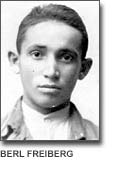
“On the third day we were sitting, binding our wounds, when we saw an armed Gentile suddenly come out into the clearing... He came near us and began speaking. He questioned us and decided to take us to his group. Then he asked us if we were hungry and said he would bring back some food.
He left and came back with a whole gang of armed villagers and gave us some bread. We were sitting around and eating and they asked us if we had guns, or gold. They told us to hand over our guns. That's is how it's done, they told us; later they'd return the weapons. Though we knew we shouldn't, we gave up the few light weapons we had... They started shooting at us point-blank. We were trapped! We had nothing to return fire with and it ended in tragedy. We came out of Sobibor to be gunned down by the likes of these...”
Fifteen year old Berl managed to get away.
Only days after the revolt, Shlomo Szmajzner and a group of twenty one escapees were unexpectedly surrounded in the forest by supposedly friendly partisans. Shlomo's rifle was taken, they were robbed and most were murdered. During the shooting, Shlomo fell and pretended to be dead. An excerpt from his writing portrays his story:
"One of the Poles who seemed to be their leader, ordered us to raise our hands for him to inspect us. What happened next was actual looting. Those who still had some gold or valuables lost everything. ...Then I realized we had fallen in the hands of hostile guerrillas. At the same time, I said to myself, ''we are done for!" The first shot came. Quick as lightning I threw myself to the ground, while the salvo was intensified. While I lay there pretending I was dead, the bandits left, since they thought their atrocious task was ended. When I realized that only silence was around me, I slowly raised my head and saw that there was no one else in sight. To my immense surprise, I noticed that both Majer and Jankel, the old tailor, had done the same. The others were all dead. ...It had to be a miracle, my being still alive, since the shots had been fired point blank.
Terribly frightened, we left this sinister place immediately, now that there were only three of us. Leon and the other boys were already in Eternity. They had survived the German tyranny and not even Sobibor had finished them off. However, they had met death at the hands of their Polish countrymen..."
Even those escapees lucky enough to find shelter with the Poles often found themselves in grave danger as this entry from Thomas Blatt's diary reveals:
"...One day Bojarski appeared in our hiding place, saying: "The Germans are looking for partisans in our area; they are searching in all the farms close to the woods. I'm afraid they will search mine as well and so I'm going to put you for in a more secure shelter a few days.'' Later, in the night we were led behind the barn to a patio-like roofed storage area. Close by, I noticed a two-wheel cart. In it lay a large object, round and gray. He held us each by the armpits and lowered us into the ground through a narrow hole dug in the earth. We asked for the kerosene lamp so that we could arrange ourselves in our new quarters. He gave it to us without a word and closed the opening by tightly pushing in straw. I looked around. We were in a small dugout, about four-and-a-half feet long, three feet wide and three feet high. Along the "ceiling" there was a strong pine pole and across it some smaller pine poles covered with straw and branches. On top of it must have been soil. The small, round entrance in the corner of the roof was now jam-packed with straw.
While wondering where the air vent must be, we heard footsteps above, then the sound of something heavy being rolled. In a moment, an object fell with a great thud over our heads and the main pole began to crack slowly in the center to form a "V".
Szmul immediately supported the pine pole with his shoulders so that the ceiling would not collapse upon us, while I tried to push the straw away from the opening in order to call the farmer. It was impossible. I began to pull out big clumps of straw, and found that something else was blocking the entry! "What's wrong?", Szmul cried out. "It's blocked! It's blocked!", I gasped. The kerosene lamp began to flicker and waver and finally went out. We could not panic, I told myself...we mustn't panic. I tried to light it again. The match lit for a few seconds and went off. "Why the hell doesn't it burn?", my mind screamed. The answer came instantly: there was not enough air. We couldn't see each other in the dark. Panicky and struggling to breathe, perspiration poured down my forehead into my eyes.
It was very dark and cramped. Without oxygen we were exhausted, close to fainting and trembling with fear. Finally, with superhuman effort, Fredek managed slightly to move the heavy object blocking the entry hole, shifting it a little towards the crack of the bent ceiling. A stream of fresh air quickly revived us all, and we squeezed out. As we stood there, it flashed through my mind that there was a change in the surrounding scenery. The two-wheel cart wasn't on the side as before, but partially over our new hiding place. The handles stood high up and the body of the wagon was slanted down to the ground. Next to it on the now broken roof was a huge millstone. We didn't try to figure out what it was all about. Fredek went immediately to inform Bojarski of the accident. In a minute he was back. "Bojarski's getting dressed and will be right out." And, grinning, he added, "You know, when he saw me coming towards him, for a second he stared at me like I was a ghost. Then he clasped his head and yelled, "How did you get out?" We laughed. It still hadn't occurred to us that he had actually tried to bury us alive and that the two-wheel carriage with the millstone was expertly prepared to seal off the entrance and make any escape impossible. It had been the sudden force from the edge of the fallen millstone that had broken the main support of the roof, forming a slide, which made shifting the weight possible. This saved us from death. There was no way we could have been able to move it off had the roof been straight. We watched Bojarski's huge figure advance towards us in the murky night. "Well, boys" he said, "you'll have to return to the old hiding place. We'll think of something else later."
The fatal day on the night of April 23, 1944, we were lying quietly, hungry and resigned, when we heard faint footsteps about the barn. We recognized Bojarski's tread perhaps he was bringing us food. We heard him stop before the board barring the entrance. Fredek stretched out on his belly and edged towards the opening in the straw. We heard the hatch open and the board move. A moment of silence, then a flash and the thunder of a shot.
I heard Kostman scream, the rest was a gurgle and then a mutter. The board was hurled back and now we heard only Fred's hoarse deathly gasp. Szmul and I were sitting against the wall. In his final convulsions Kostman threw himself about, spraying us with his blood. After the initial shock and confusion, we realized that he was dead and it was our turn. Still we felt it was a nightmare, a kind of bad dream, but Fred's body was only too real.
To reach us through the regular opening one had to crawl flat on his stomach, but now we could be too dangerous for the murderers. So they decided to disassemble the hiding place. We heard the straw covering the shelter being pushed away. We knew this was our last moment. Cramped and without weapons, we felt like rats in a trap. Szmul crawled to the other corner where he burrowed into some thick straw. I followed him. We waited. The last straw was removed uncovering the big table--our hiding place. Then the thin layer of straw covering me was removed. "I got him", shouted a young fellow happily. I begged him not to shoot and to spare my life. Holding a lantern, he looked straight into my eyes. I saw his face and the muzzle of his rusty pistol. "Where is the first one?", he asked me. I replied, "He's dead." "And where is the second?" "Next to me." I heard the report of the pistol and felt a sharp, burning bite of the bullet under my jaw. My ears rang. Instinctively and fully conscious, I took a deep breath, closed my eyes and slid down. Seconds passed. I felt no pain. I wasn't sure whether I was alive or if this was life after death. I opened one eye slightly. In the dim light, I saw the man who had shot me. He was talking in a low voice with someone. Now I knew I was alive. At the same time I wondered if I should ask him to shoot me again? If he left me, I would only suffer and die later. Or he would bury me alive. But I did not move...
I felt a noose around my feet. They pulled me outside. Evidently, I was in the way of their reaching Szmul. I was put down in the mud. The night was cold. I was nude and it was raining. I opened my eyes and watched in the dark, silhouettes of the men in front of our hiding place. I heard steps and lay down again. A man approached, stopped and said, "Might be better to give him another bullet." I froze, recognizing Bojarski's voice. Someone put his hand over my mouth, I held my breath. At the second, when I though my lungs would burst, he removed his palm. He then felt my fingers in the dark probably looking for rings and said to Bojarski, "Lets not waste a bullet; he is already stiff."
Suddenly I heard a scream from Szmul, "Don't shoot! Don't shoot! I want to live!" There was a shot, then another. Again a scream from Szmul, a last muffled shot, then complete silence...
They returned to and pulled me inside the barn. After more poking and shaking of the hay they left, while one said to the other, "We'll bury them tomorrow; they won't rot until then and we can search more thoroughly in the daylight." When they left I crawled out, and ran to the woods.
Ironically, after surviving the hell of Sobibor, Leon Feldhendler was killed in his home in Lublin, soon after the liberation by anti-Semitic Polish countrymen. Sasha Pechersky spent years in a Soviet prison. They did not believe his story and he was accused of cooperation with the Nazis. He was released when people from abroad were asking about him and his story was verified.
On June 3, 2019, Semyon Rosenfeld, the last living Holocaust survivor who participated in the revolt and escape from the Sobibor death camp, died at the age of 97 in Israel.
Rosenfeld was born Ternivka in 1922 and, in 1940, joined the Red Army. While he was fighting the Germans, his family was killed by the Nazis and buried in a mass grave near the town where he lived.
After being injured, he was captured by the Germans in 1941 and sent to a labor camp in Minsk, Belarus. In 1943, he was transferred to Sobibor. Rosenfeld lied about having a profession when he arrived and was sent to work in the carpentry shop; others without skills were murdered.
A few weeks after his arrival at Sobibor, he asked a German officer what happened to the other prisoners who had arrived with him. The officer pointed to the smoke coming from the crematorium and said, “Your friends are there.”
Rosenfeld escaped during the revolt and survived by hiding in the woods until 1944. He then rejoined the Red Army and participated in the capture of Berlin.
SOME OF THE SURVIVORS
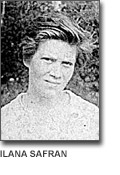

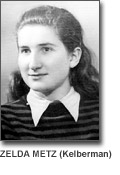

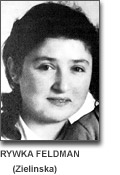
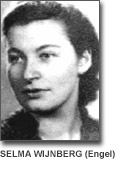
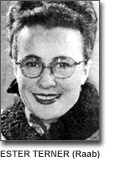
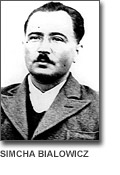
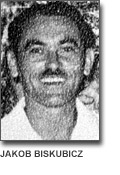
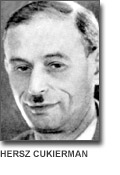
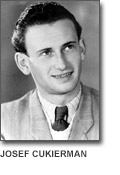
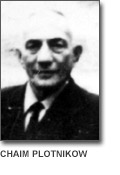
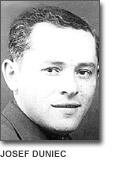
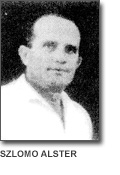
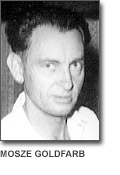
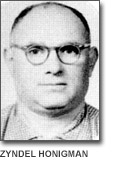
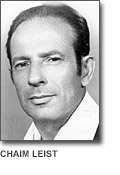
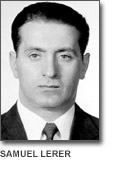

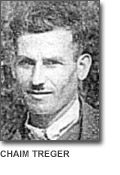
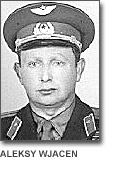
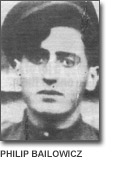
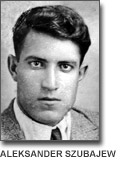
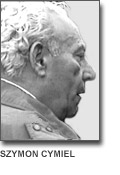
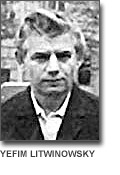
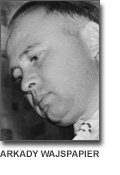
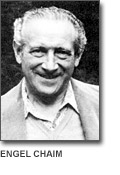
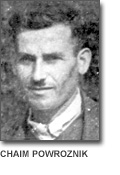
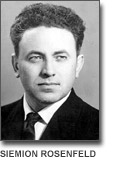
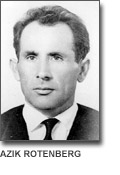
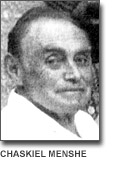
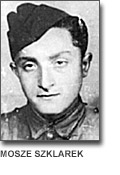
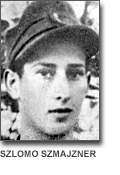
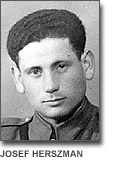

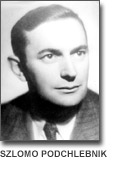
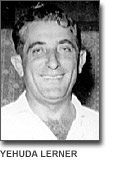
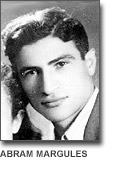
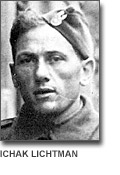

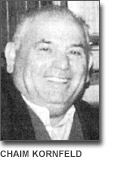
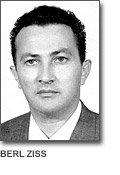
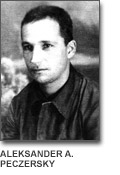
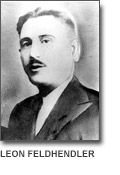
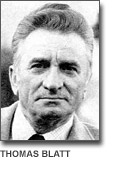
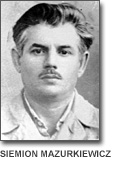
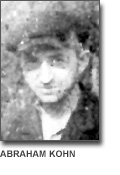
Sources: Historical research of Thomas ‘Toivi’ Blatt, survivor of the Sobibor death camp who escaped during the uprising on October 14, 1943.
Stuart Winer, “Last survivor of Sobibor death camp uprising dies, aged 97,” Times of Israel, (June 3, 2019).
Provided by his daughter Rena Smith.


